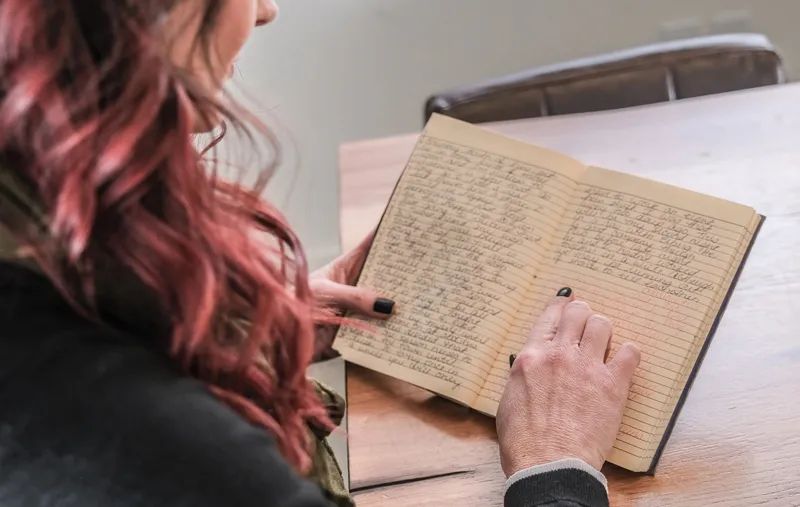
On the Front Lines
Combat Veteran Dallas Knight reflects on the Iraq War and how it’s led her to fight for good
Two years ago, Dallas Knight brushed the dust off a leather-bound journal, unsure if she wanted to relive her handwritten memories. Inside were 88 entries that detailed her days during the initial months of Operation Iraqi Freedom. Just 18 years old back in 2003, Dallas served in the 72nd Military Police Company.
It was her unit that provided protection just outside the walls of the Abu Ghraib prison, described as Saddam Hussein’s former torture chamber. In 2003, it was reclaimed by the U.S. military and rebuilt by Dallas’ unit to house high-level prisoners of war.
Dallas landed in Iraq because she had dreams of working for the Drug Enforcement Administration. Before she could apply for a job with the DEA, she needed a bachelor's degree and some real-world experience. She thought the military would give her a chance to get both.
“What I didn’t realize was how ‘real life’ the experience would end up being,” Dallas says.
As she talks about that season of her life, the timing of her decision wasn’t lost on her. Coming from a multi-generational family of combat veterans, Dallas joined the U.S. Army just weeks before Sept. 11. When she turned on the news that day, “My first thought was, ‘I’m going to war. This is absolutely going to turn into a war,’” Dallas says.
Her unit was called up in February of 2003, one month before the official start of the Iraq war.
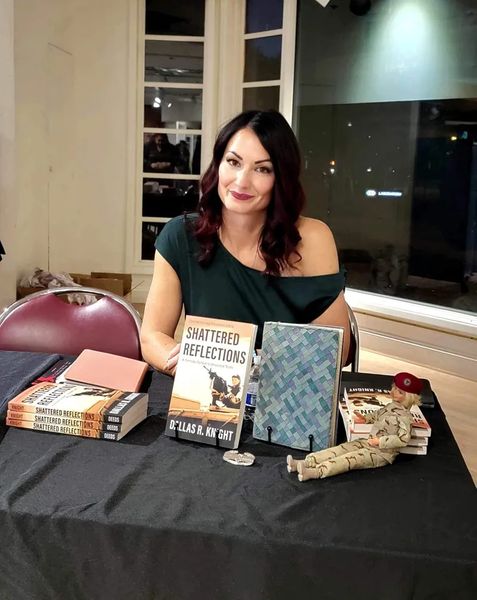.jpegweb.jpg?fit=outside&w=800&h=1007)
This past fall, Deeds Publishing released “Shattered Reflections: A Female Soldier’s Unveiled Truth.” The book was Dallas’ journal that vividly detailed her time in combat.
“I thought, OK, if I put this out there, maybe it will give others the inspiration or empowerment to either start or continue down their healing journey, especially women who have been to combat,” Dallas says. She’s come to learn that even spouses of servicemen and -women have found value in it as they try to understand what their loved ones endured.
“I oftentimes was hesitant to put my story out there because it wasn’t some ‘Blackhawk Down’ story,” she says. “It wasn’t some big Sony production that everyone was going to think ‘Oh my gosh, I can’t believe that happened. What a heroic and amazing story.’ But it was still a story that I felt sure needed to be shared.
The book, which she describes as the raw, authentic perspective of a 19-year-old girl in combat, details the intense sleep deprivation, the unsanitary conditions, the prison riots, the fear every time her unit would hear the thump that preceded a mortar attack, the loneliness, the illness and the loss.
“There was one particular entry that almost ended it all,” Dallas admits about her writing process. “I read the first line and it was something along the lines of ‘Last night was the worst night that I have spent in Iraq.’ I shut the book, set it down and said, ‘I’m done.’”
The entry — Sept. 21, 2023 — detailed the bombing of a military intelligence tent that killed one and injured eight.
“It hit where the EPW (enemy prisoner of war) compound was. Just outside of that, there was a tent where the military intelligence unit stayed. The mortar hit just outside that tent by the stairwell that led to the prison,” Dallas says. She was off duty that night. On many such nights, she and another female soldier would sit in the stairwell and talk. They weren’t there that night.
“I would have been hit by shrapnel for sure,” she says.
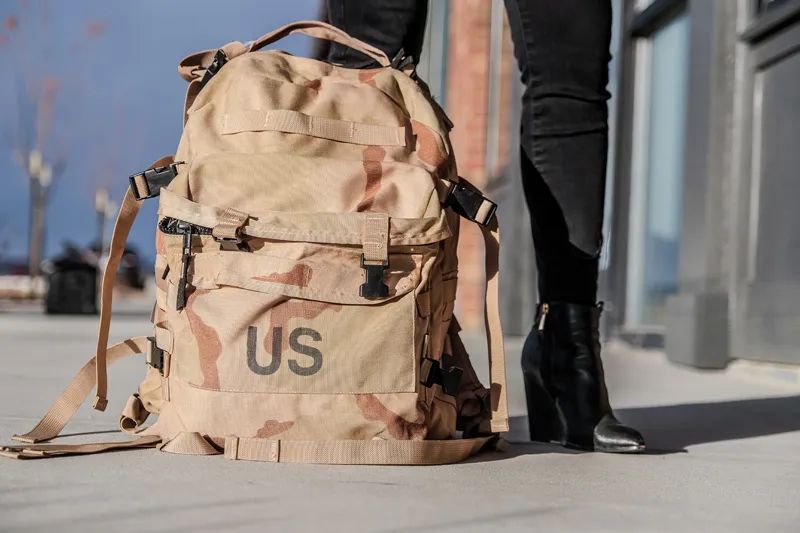
When Dallas made it home in November of 2003, it came amid difficult questions. Her unit was the 72nd, but it was the 372nd that came under fire for its use of torture during interrogations of Abu Ghraib prisoners.
“It was disgusting,” Dallas says. “It was heartbreaking and disappointing to watch something we built from scratch be ultimately destroyed in a way that puts all of us that were there on the defensive immediately when someone asks where we were in Iraq and what our mission was.” Dallas says her unit subsequently underwent a full investigation, and everyone in the unit was cleared.
Dallas says she did not know about the abuses going on inside the prison. Midway through her tour in Iraq, she remembers asking her superiors not to be put on security detail inside the prison. For months, she’d suffered severe sexual harassment by the prisoners she was supposed to guard and protect. For years, she stuffed those feelings aside and refused to acknowledge them.
“I was watching my walls go up and watching me become more emotionally unavailable,” Dallas says.
As she looks back now after years of healing, she knows all roads have led her here — not only publishing her book but how it led to her career in software engineering designed to serve law enforcement and the military.
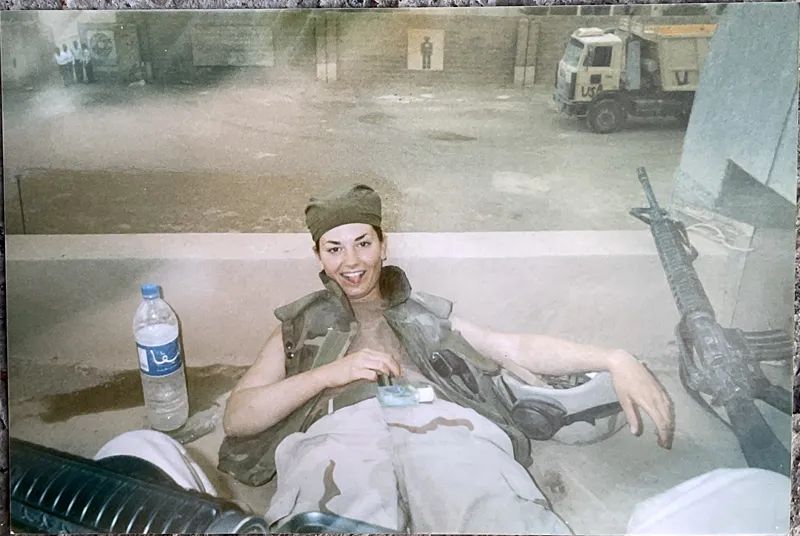
After leaving the military, Dallas realized her dream of working in drug enforcement. She spent 10 years with the Las Vegas Metropolitan Police Department, assigned exclusively to the DEA and working on an anti-drug-trafficking task force. She was an intelligence analyst and learned how to pick up on the tiniest clues to help law enforcement stay on the trail of several high-profile drug dealers.
Coming from a family with a history of addiction, her work was beyond satisfying.
“I think on a subconscious level, I wanted to make an impact and not have other little girls endure what I did,” Dallas says. She shakes her head as she says, “To see the drug house and to watch the children be taken out of these situations because their parents are making meth in the garage. …”
Today, she works for a company called Blue Light. Just this fall, the company released new software that she helped develop. Its software law enforcement can use to search 20 to 30 data sources with only one search.
“It’s very time-consuming to go what I call data shopping,” she says. “You run a query through our software and it hits all of those sources simultaneously,” saving valuable time for investigators.
While traveling to conferences to promote the software, the discovered her latest passion project, known as Skull Games.
“Their mission is anti-human trafficking,” Dallas says, adding that the group is a collaboration between retired military and law enforcement intelligence analysts. The volunteer group meets once a quarter and goes over escort ads uncovering sex trafficking indicators. They gather up all leads, compile detailed reports and turn the information over to law enforcement. They only use the web, no back-channel programs and no hacking. The goal is to use open-source information to help law enforcement re-create their every step and quicken the pace of an investigation.
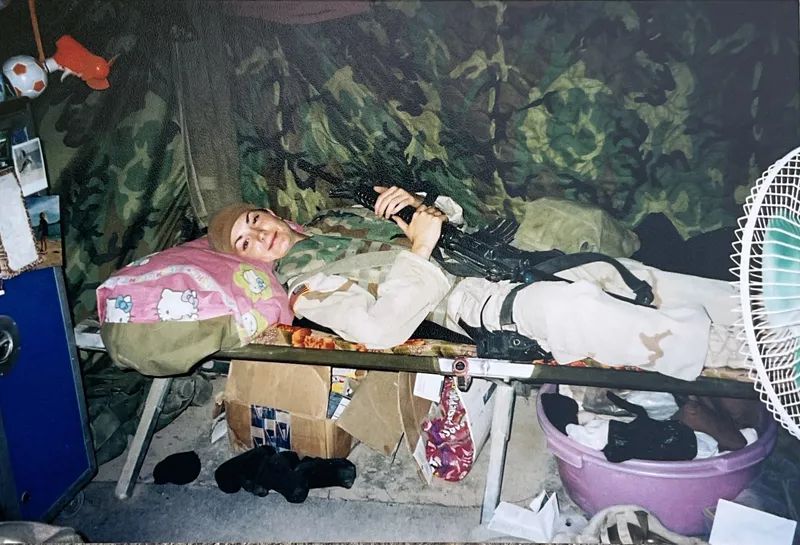
“The first thing we want to do is identify the victim, the girl in the ad. Most often we have a name and it’s most likely an alias and there’s a phone number,” Dallas says. That phone number might lead to a social media page, creating a domino effect. “Through that we might identify her real name, date of birth, where she lives, who her family is – through that we validate, is this most likely a trafficking victim?”
When the group met last October, it passed more than 60 potential human trafficking cases over its law enforcement partners all over the country. And it was just this fall that Dallas also unveiled a podcast called “Not So Average Jane,” in which she chats with other female combat veterans about their service.
“I wanted to give these women a safe space to share their story,” Dallas says. “I wanted them to feel safe and be heard.”
Since the podcast’s launch, she’s had six female combat veterans tell their stories. She dreams of one day taking the idea a step further, by hosting a Not So Average Jane Retreat for female combat veterans. The weekend would not only focus on healing but would help these women create bonds with other women who understand the battles they’ve endured.
As she slips into new roles while still being a single mom of two boys, she recalls a piece of advice another veteran once shared.
“He told me that veterans need two things — a mission and a purpose. Without those two things, we fall into depression, we fall out of place, we isolate, and we can go down this really scary rabbit hole that we, at times, can’t get out of,” Dallas says.
Through writing her book, starting her podcast, working in a place that helps her be a force for good and volunteering in a way that keeps her intelligence analysis sharp, Dallas has found both mission and purpose.
“For the first time in my life, I feel most of what I’ve endured throughout my life has purpose now,” Dallas says. “All the challenges, all the struggles, all the tears, all the frustrations, the anger and the dark moments. They were all for this. They all have purpose and meaning to this now.”
YOU CAN FIND “Shattered Reflections: A Female Soldier’s Unveiled Truth” as well as the Not So Average Jane podcast at notsoaveragejane.com.











